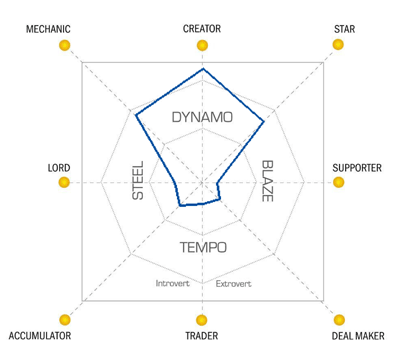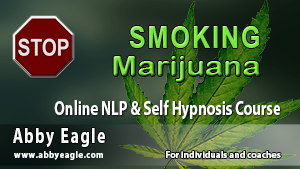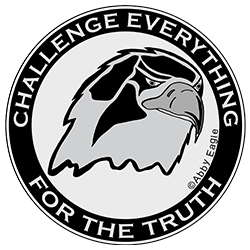
Learn how to hack flow - that is, how to put aside negative emotions, doubt and negative beliefs and instead access positive feelings that motivate you towards your desired outcomes - using NLP, Hypnotherapy and Meditation ... Use the contact form in the right side bar to book a free 20 minute Skype or Zoom session.
How To Engineer Flow States And Increase Your Performance and Productivity
By Abby Eagle (2018)
You know how some days everything just flows along smoothly and yet other days, no matter what you do, nothing seems to work out? In one you were in the zone – that is in a flow state – in the other you were in struggle.
You might have noticed that when you get into the zone – when you get into a flow state – it doesn’t matter how challenging things are. In fact sometimes the more challenging the better. But then there are some situations in which you just can’t seem to get into flow.
So if you want to perform at your best every day then you need to understand the science of flow states. The better you are at recognising where you are in the flow cycle then the better you will be at managing your state such that you get to perform at a higher level in every area of your life – without the need for cigarettes, marijuana, drugs, alcohol and comfort foods.
So in this video I am going to show you how to engineer flow states.
WHAT IS FLOW?
So what is flow? Steven Kotler, author of The Rise of Superman, defines flow as an optimal state of consciousness in which you perform at your best. You set an intention which drives your attention onto the task at hand such that you are able to focus in and concentrate. In flow you are not using more of your brain – you are using less. The front of the brain which calculates time shuts down – so time seems to disappear. The part of the brain which is responsible for the critical voice also shuts down – and you are left with a positive coaching internal dialogue. In flow your performance is incredibly heightened. As you become engrossed in a task the language centre quietens down, time goes away and you are plunged into the eternal now.
Throughout history, spiritual experiences are marked by the loss of past and future; by being totally immersed in the here and now, and by becoming one with the object of attention.
In flow there is a movement of energy, of thoughts, of words and of actions. There is a rhythm, as in walking or swimming. There has to be some intended direction and a reason to take action to move in that direction. As you get into flow then you can pick up speed.
Flow states occur under certain conditions and to varying degrees. The most profound flow states occur when there is massive risk – when the task at hand has massive meaning associated with it – when there is no one else to turn to – when you have to rely upon yourself (even in cases of group flow) – and when the situation forces you to focus in and concentrate. It is in these types of situations that you discover enormous reserves of energy – mental, emotional and physical.
So how to get into flow?
To initiate flow you need to set an intention that drives your attention onto the task at hand such that you can focus in and concentrate. That means you have to have something that is important for you to do. There has to be a big why.
So let’s say that you have already decided upon the activity. You know what the desired outcome looks like, sounds like and feels like. You know when you want it, where you want it, with whom you want it and why you want it? Then we move into the how. So let’s quickly review the NLP Well Formed Outcome Questions. I have covered this in more detail in other videos and it is also on my website but for today just a quick review.
Well Formed Outcome Questions.
- Do you know what to do?
- Is it self initiated and maintained?
- Can you do it?
- Have you done this before?
- Do you know the steps and stages?
- Do you have an action plan?
- Do you have a way to monitor your progress?
- Do you have a way to deal with interferences?
- Do you have both internal and external resources?
The checks.
Are you in alignment within yourself to taking the action to achieve the desired outcome?
Is the outcome compelling?
Have you made a decision?
Have you made a commitment to taking the action to achieve the desired outcome?
STAGES TO FLOW
There are four stages in the flow cycle. (Steven Kotler)
1. Struggle.
2. Relax and let go.
3. Flow.
4. Learning and consolidation.
But first let’s take a look at the flow triggers.
FLOW TRIGGERS
Steven Kotler has identified a number of triggers that support flow.
1. High consequence. There has to be a risk, whether that be physical, emotional, intellectual, social or creative. In addition there has to be a big reason “why” to drive the action. The more meaning associated with the task then the more it will drive flow.
2. Deep embodiment. That is, being physically involved with the task at hand and having all the senses involved simultaneously.
3. You need an environment in which you will flourish. The environment needs to be rich with novelty, unpredictability and complexity. Ideally in all areas of your life – your home, at work, where you play, where you shop – even down to how the computer applications look and feel to you.
4. The task should be a stretch but not to such a degree that it causes anxiety or that it takes too long to complete. Once you commit to taking action then there needs to be a period of uninterrupted intense focus and concentration for as long as it takes to complete the task. Feedback should be as immediate as possible. Positive feedback acts as a reward which stimulates the brain to release feel good chemicals which then motivates you to engage in new tasks.
5. There are some things that we want to do and there are some things that we need to do. Sometimes having to do something can act as a major trigger for flow. When you are ‘forced’ to take action it forces you to focus in and concentrate.
6. Osho, the Indian Mystic stressed the importance of being total in whatever you do. Bringing a sense of urgency and an intensity to the task at hand – even meditation, as if this is the last moment of your life.
So how to get into flow?
THE FLOW CYCLE
There are four stages in the flow cycle. Once you know how to recognise the stages then you can get more control over it. As previously stated the four stages are:
1. Struggle.
2. Relaxation and Release.
3. Flow.
4. Consolidation and Learning.
1. Struggle
The flow cycle starts with a learning and loading phase. This is the doing phase. This could be gathering information on a topic or learning a new skill. You might start out of your depth; you might feel frustrated; you might not know what the solutions are but you have to keep on working on the project and trust in yourself.
The challenge is to push yourself not quite to the point where you might give up from sheer frustration but just to the point where you need to take a break. And yet, having said that, there are cases throughout history where people have either pushed themselves or been pushed to the limit of endurance and entered massive spiritual flow states.
So the struggle phase is where you use the conscious mind to do everything you can to complete the activity. You might work hard at the activity but then comes a moment when you just have to take a break and do something totally different.
2. Relax and Let Go
Like go for a walk, ride a bike, listen to music and forget about what you were doing. This allows the unconscious mind to process whatever it was you were doing unimpeded by the conscious mind.
Kotler uses the following example: when Einstein got stuck on a Physics problem he would retire to the kitchen to play the fiddle. This is the ‘relax and let-go’ stage. As he focussed in on playing the instrument he forgot about the problem and then at some point the answer would suddenly would arise in his mind.
In my surfing days I would sometimes find it hard to catch my first wave. If the surf was small it was no problem but when the waves were a challenge then fear kicked in which brought in negative thinking. But once I had committed to a wave – any wave – and I had wiped out (that is fallen off) then I felt totally refreshed and was then able to surf like a pro. So I moved from the struggle phase through the relaxation phase into flow. In this case the relaxation phase occurred in those ten seconds while being smashed around inside the wave. When you wipe out you have to relax – there is no other way to deal with it. It is a total let-go experience.
So in the struggle phase the brain is in beta. You take a break, play the fiddle, grab a coffee, take a shower, clean your office, go for a walk – the brainwaves shift from beta down to alpha – then at some point the brain has bursts of theta activity – and this is where you get the ‘ah ha’ experience. Now you are in flow.
3. Flow.
So at some point in the relaxation phase you reach an optimal state of consciousness – a state in which you find yourself motivated to get back into the task with renewed energy and clarity. This is where you feel like you can do no wrong; this is the zone, this is flow. During flow the dorsolateral prefrontal cortex shuts down and as a result the inner critic switches off and you get a positive coaching internal dialogue.
Now there are degrees of flow. The flow state could be characterised by feeling more easy going, being more resourceful; having insights; having the feeling that things are working out – or the state could be profoundly mystical – where time slows down, speeds up or disappears altogether – and the sense of self disappears such that you become one with the object of your attention.
So to summarise the flow cycle – you set an intention to work on a task. You struggle – you use the conscious mind. At some point you need to take a break. The conscious mind gives up. This allows the unconscious mind to process the activity, at the level of the unconscious mind. So now the sense of self has shifted from the language centre in the left hemisphere to the sense of self in the right hemisphere. So now when you work on the task it feels effortless – like the energy is flowing through you – like you are not even doing it.
4. Consolidation and Learning
The consolidation and learning phase occurs during delta sleep – so make sure you get a good nights sleep.
5. The Between Flow States Stage
In between flow cycles you might feel horrible. But rather than resorting to drugs, alcohol and chocolate – bring awareness to the fact that you are in the between stage and what you need to do is to give yourself a task. Something which you know from past experience will get you into flow. What I do is to sort through my stuff and get things organised, neat and tidy – and then I get out my flip chart paper and work on a Future Selfing exercise. Then I am primed and ready to go once again.
Flow Neuro Chemistry
Just in case you are interested there is a sequence of neuro chemicals involved in the flow process. Kotler tells us that in flow the brain releases performance enhancing chemicals: norepinephrine, dopamine, anandamide, endorphins and serotonin.
Each of these neuro chemicals has a drug analogue. Cocaine is dopamine. Norepinephrine is what you get from speed and Ritalin. Anandamide is the psychoactive in marijuana. Endorphins are opiates and heroin. Serotonin is either ecstasy, Prozac, LSD or MDMA depending upon the neurochemical pathway. Flow is an intrinsic motivator. If something feels good then we are motivated to do it again, and again. Flow is addictive and as such it amplifies motivation and increases creativity.
Neuro chemicals are expensive to produce so make sure you pay attention to your diet.
TRACK THE FLOW CYCLE
What you need to do is learn to recognise where you are at any point in time in the flow cycle. How each person gets into flow will depend in part upon their personality type, meta programs, passion, purpose, strategies, rhythms and their compelling futures.
1. Personality Type
Roger James Hamilton of Wealth Dynamics took the dimensions of Intuition and Sensing, and Introversion Extroversion and mapped them out against each other and to make a square, giving us eight personality types.
It is pretty rough but when you start looking at the meta program clusters that form personality type you get a powerful tool to measure personality type. So an introverted sensor like Warren Buffet (Accumulator) is going to use a different strategy to get into flow than an extroverted intuitor like Oprah Winfrey (Star).
2. Meta Programs
NLP Meta Programs are perceptual filters that determine how you sort information. For example, do you focus on the negative or the positive? Are you a big picture person or do you prefer the details? Do you prefer to gather a lot of information before taking action or are you quick to action? Are you more options or procedural? An understanding of meta programs will help you to fine tune your personality type and discover your true genius.
3. Passion
Have you noticed how easy it is for you to focus in and concentrate on a topic or activity that you feel passionate about? Identifying your passions will help you to identify the environment in which you will flourish and thus focus in on what is important to you. Intention drives attention – we pay attention to things that are meaningful to us.
4. Purpose / Values
Purpose provides the meaning that drives the behaviour. The more meaning that is associated with an activity then the more motivated you will be to take action. On my website and YouTube I show you how to elicit values. In brief, to discover your big ‘why’ just ask yourself questions like, “What is important to you about ‘x’? And what else is important to you about ‘x’? Why is ‘x’ important to you? Why else is ‘x’ important to you? Once you get that then what do you get to have and to experience? Continue mapping out the process so that you get a cluster and a chain of values that lead you to the big why.
5. Strategies
In NLP terms a strategy is a sequence of internal and external representations which consistently produces an outcome. For example, to drink a cup of tea there has to be some trigger either in the external world or your internal world that tells you that now is the time to get a cup of tea. It is going to be either something you see, hear, touch, smell or taste. Or it is going to be a picture you make in your mind, something you say to yourself, a feeling, the thought of a smell or a taste. You run a sequence of thoughts and at some point you exit the strategy and decide to get a cup of tea. What follows is another strategy for making or obtaining the cup of tea. Followed by a strategy for how to drink the tea and for knowing when the tea drinking process is finished.
We use strategies and processes for everything. The success of the business world is built upon fine tuning strategies, as are careers, as is sports performance, as is health, as are food choices, as are relationships – and as is Forex Trading.
6. Rhythms
A year has 12 months. There are 4 seasons. The business world uses a quarterly cycle. You can break the year down into months, weeks and days. You might have a five day work week followed by a 2 day weekend. The day is broken into day and night – into morning, mid-day, afternoon, evening and night. There are also typical environments to our lives. Work, play, shopping, social, etc. So as biological beings and as Westerners there is a natural rhythm which we can attune ourselves to in order to perform at our best. We can also engineer that rhythm for example, by using a sunrise lamp to help you get started in the winter months.
7. Compelling Futures
Each of us has a possible negative or a positive future. The idea is to think of the worst possible future that could eventuate if you don’t take care of yourself and your finances. Then you build for yourself a positive future in which you have wealth, health, friendship and family. You now have the choice of a negative or a positive compelling future. You have a big reason to take action to move away from the negative future and move towards the positive future. Compelling futures act as a constant reminder to stay on track.
PERFORMANCE
You might have noticed by now that what we are doing is mapping out structure and systems in meticulous detail. If you work for an employer then the employer provides the structure. They give you a job title, a job description – they provide the work environment and the tools – they tell you when you need to start work, when you can have a break –where you can go and at what time you knock off. The employer holds you accountable. If you don’t perform to the agreed upon standard you get fired. But when you are self employed or working on a personal project then you need to hold yourself accountable. So you need someway to do that.
Focus and Concentration
And last but not least in terms of engineering flow states, if you want to improve the discipline that is required to focus and concentrate then try a sitting style meditation, an hour in one sitting for 30 days. The intention is to sit in meditation at exactly the same time each day, without moving, for one hour or more, every day for 30 days. Most people will find this discipline to be quite a challenge because it requires a total unwavering commitment and single pointed concentration but if you step up to the challenge and persevere then you will learn a lot about how to commit to an activity – how to focus in and concentrate – how to say “no” to distractions and how to say “yes” to the task at hand. If you are interested there is a comprehensive meditation package on my website.
REFERENCES
A special acknowledgement to Steven Kotler for the clarity that he brought to the science of flow. He has a book titled, “The Rise of Superman”. I have not read the book. I learned about his concept of flow from a number of YouTube videos.
Share With Friends
| DISCUSSION GROUPS | |
|---|---|
 |
|
| NLP Future Selfing | |
| NLP, Hypnotherapy & Meditation | |
| NLP Peace Mapping | |
| Facebook Discussion Group | |
| The secret of high achievers |
|---|
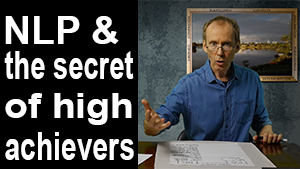 |
| How to build a powerful team |
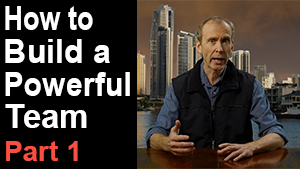 |
| Learn the NLP Meta Model |
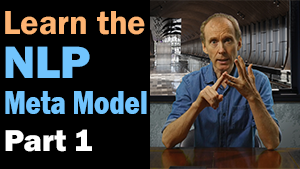 |
| How I stopped drinking alcohol. |
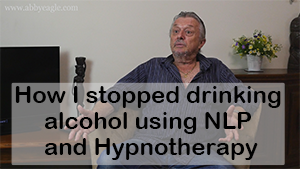 |
| How to coach yourself using NLP. |
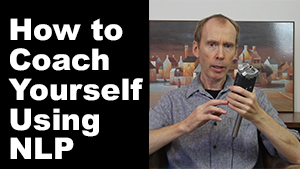 |


